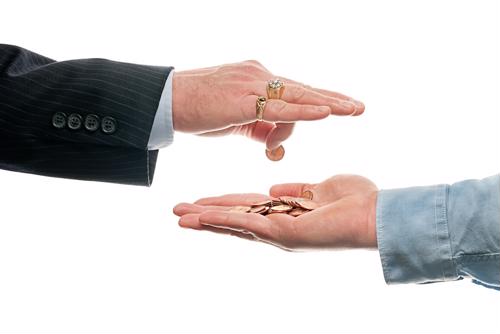
Is it possible to pay a mortgage off early? Yes! While the conditions will vary from lender to lender, you can certainly pay your mortgage off earlier than anticipated. There are many different reasons borrowers choose to pay their mortgages off early.
For example, if you get a new job that pays double the salary you had when you took out the loan, you’ll be able to make bigger payments more frequently to get out of debt faster. But before you make any large mortgage payments, it’s important to weigh the pros and cons first.
Benefits to paying your mortgage off early
Making your final mortgage payment takes a great weight off your shoulders. You no longer have to figure it into your monthly budget and you can put that money toward other important needs, like retirement or your kid’s college tuition. By making one or several large payments to satisfy the loan, you’ll save money in the long run, since you’ll pay less in interest.
For example, if you have a $100,000 30-year fixed-rate mortgage with an interest rate of 3%, you’ll end up paying $51,777 via monthly interest payments. But if you can afford to pay off the loan in 15 years, you’ll only pay $24,305 in interest.
Risks associated with an early mortgage payoff
In general, mortgage lenders prefer borrowers to pay their loans off no earlier and no later than the established mortgage term, since they make their money by charging borrowers interest fees on top of monthly rates. So, if you pay your mortgage off early, the lender won’t make as much revenue as it projected when it issued the loan. For example, if you decide to fully pay your loan off today instead of at the maturity date, which is 10 years away, your lender will miss out on revenue that they expected to make via interest over the next 10 years. To avoid this scenario, your lender may have incorporated a prepayment penalty into your loan agreement.
If you have a mortgage with a prepayment penalty, it will most likely apply when more than 20% of the mortgage is paid off in a year. The fee, depending on the lender and the terms of the loan, might take the form of several months worth of interest payments. For example, let’s say you pay $100 in interest every month for your mortgage. You decide to make a lump sum payment that is 50% of your loan, which causes your lender to charge a prepayment fee. The conditions of your loan state that your prepayment fee will be equal to 80% of interest payments over six months. In this case, your prepayment fee would be 80% of $600, or $480. Before obtaining a mortgage or deciding to pay it off early, it’s important to ask your lender about prepayment penalties associated with the loan agreement.
Finally, you shouldn’t attempt to pay your mortgage off early if it’s going to leave you with very little cash. While it might feel good to be completely out of debt and have 100% equity in your home, it’s often safer to keep making modest monthly payments. You want to make sure you’re financially prepared for unexpected events like medical emergencies and legal troubles.
How to pay your mortgage off early
If after reviewing the benefits and the risks, you’ve decided to pay your mortgage off early, the next step is to decide what’s the best approach. First, you have to determine how quickly you want to pay it off. If you recently won the lottery and want to pay it off in one lump sum payment, that’s easy: Just get in contact with your lender, pay whatever prepayment fee might be applicable and move on.
If you’re trying to pay the loan off more quickly without increasing your rate, consider setting up bi-weekly payments. Instead of making mortgage payments once a month, you can make them every other week (with each payment equaling half of a full month’s rate). This will result in 26 payments over the course of a year rather than 12 (since there are 52 weeks in a year). If you do this with a 30 year mortgage, you can pay it off in 22 years.
If you have some extra cash laying around, perhaps from a tax refund or inheritance, you could put that money toward paying off your mortgage at a faster pace. Before you do this, make sure you consult with your lender to ensure the money specifically goes toward your principal (the outstanding balance on your loan). Borrowers often make the mistake of putting additional cash toward their monthly interest payments, which doesn’t speed up the process of paying off the mortgage.
Consider refinancing
If you recently got a job with better pay and you want to pay your mortgage off early, take some time to consider refinancing. While owning 100% of your home is comforting, it doesn’t always make the most financial sense. If interest rates on home loans are particularly low, you could refinance your mortgage with higher monthly payments over a shorter term, which will save you some money. This will also help you avoid hefty prepayment penalties.
Interested in learning more about paying off your mortgage? We’re here to help! Contact The Federal Savings Bank today.
This information is intended for educational purposes only. Products and interest rates subject to change without notice. Loan products are subject to credit approval and include terms and conditions, fees and other costs. Terms and conditions may apply. Property insurance is required on all loans secured by property. VA loan products are subject to VA eligibility requirements. Adjustable Rate Mortgage (ARM) interest rates and monthly payment are subject to adjustment. Upon submission of a full application, a mortgage banker will review and provide you with the terms, conditions, disclosures, and additional details on the interest rates that apply to your individual situation.


